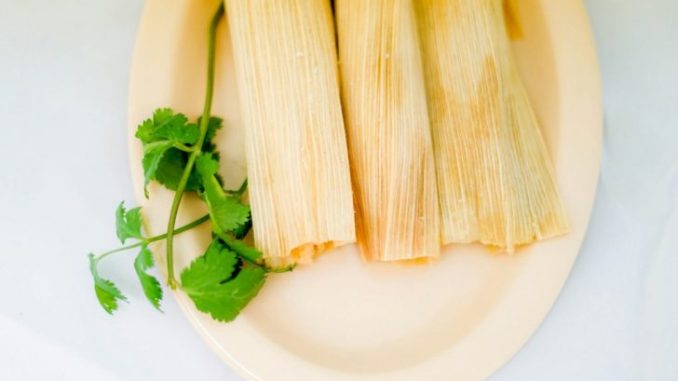
Are tamales healthy food? Well, tamales, with their savory or sweet fillings wrapped in masa dough and steamed in corn husks, are a staple in many Latin American cuisines. But while they are undeniably tasty, how do they stack up nutritionally?
Tai / Unsplash / Originating from Mesoamerica, tamales are a traditional dish made from masa (a starchy dough made from nixtamalized corn) and filled with various ingredients.
However, these fillings can range from meats, cheeses, vegetables, and chilies to fruits, depending on regional preferences and traditions. The filled masa dough is then wrapped in corn husks or banana leaves and steamed until cooked through. Thus, tamales are often enjoyed during festivals, holidays, and family gatherings, making them a cultural as well as a culinary treat.
Are Tamales Healthy Food?
So, are tamales healthy food? The answer, like many things in nutrition, depends on various factors including ingredients, portion size, and preparation methods. Let’s break down the components to see what each contributes to your diet.
Masa Dough
The masa dough is the cornerstone of any tamale. Traditionally made from nixtamalized corn, masa is rich in carbohydrates and provides a good source of energy. The process of nixtamalization (soaking corn in an alkaline solution) increases the availability of niacin (vitamin B3) and can improve the digestibility of the corn.
Gonz / Pexels / The cornerstone of any Tamale, Masa Dough is rich in carbohydrates.
Likewise, Masa is also a source of fiber, though the amount can vary based on how it is prepared.
Fillings
The fillings in tamales can vary widely, which significantly impacts their nutritional profile. Common fillings include:
Meat (pork, chicken, beef): These provide a good source of protein and essential amino acids. Lean meats can offer plenty of protein without too much fat.
Cheese: Adds calcium and protein but also brings saturated fat into the mix.
Vegetables (beans, chilies, squash): These contribute fiber, vitamins, and minerals, enhancing the tamale’s overall nutritional value.
Fruits: Often found in sweet tamales, fruits can add vitamins and antioxidants but also sugar.
Nonetheless, Tamales are typically steamed, which is a relatively healthy cooking method. Steaming helps retain more vitamins and minerals compared to frying or grilling. So, the healthiness can vary based on how much oil or lard is used in the masa dough.
Nutritional Benefits of Tamales
To answer the question, “Are tamales healthy food?” it is important to look at both the positive aspects and potential downsides. Tamales filled with meat or beans can be an excellent source of protein. Protein is crucial for muscle repair, immune function, and overall growth and development. For those looking to maintain or build muscle mass, tamales can be a good addition to the diet.
Rich in Fiber
The corn masa and vegetable fillings contribute dietary fiber, which is essential for healthy digestion. Fiber helps regulate blood sugar levels, lowers cholesterol, and aids in maintaining a healthy weight by promoting a feeling of fullness.
Stefan / Unsplash / Tamales can be a great source of vitamins, fiber, and minerals. You bet! Tamales is a healthy food.
Thus, Tamales can provide several essential vitamins and minerals, depending on their ingredients. Niacin, from the nixtamalized corn, is vital for metabolic processes, while fillings like beans and vegetables can add iron, potassium, and vitamin C.
So, are tamales healthy food? The answer can vary. But with thoughtful preparation and mindful eating, tamales can certainly fit into a healthy diet. By focusing on quality ingredients and healthy cooking methods, you can enjoy this traditional dish without the guilt. Whether you savor them at a festive celebration or as a comforting meal at home, tamales offer both cultural richness and nutritional value.
The post How Nutritious Are Tamales? A Complete Breakdown appeared first on Doctor Report.
